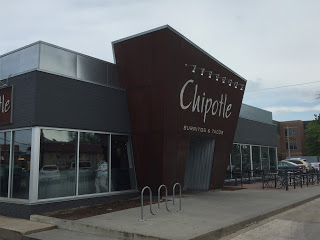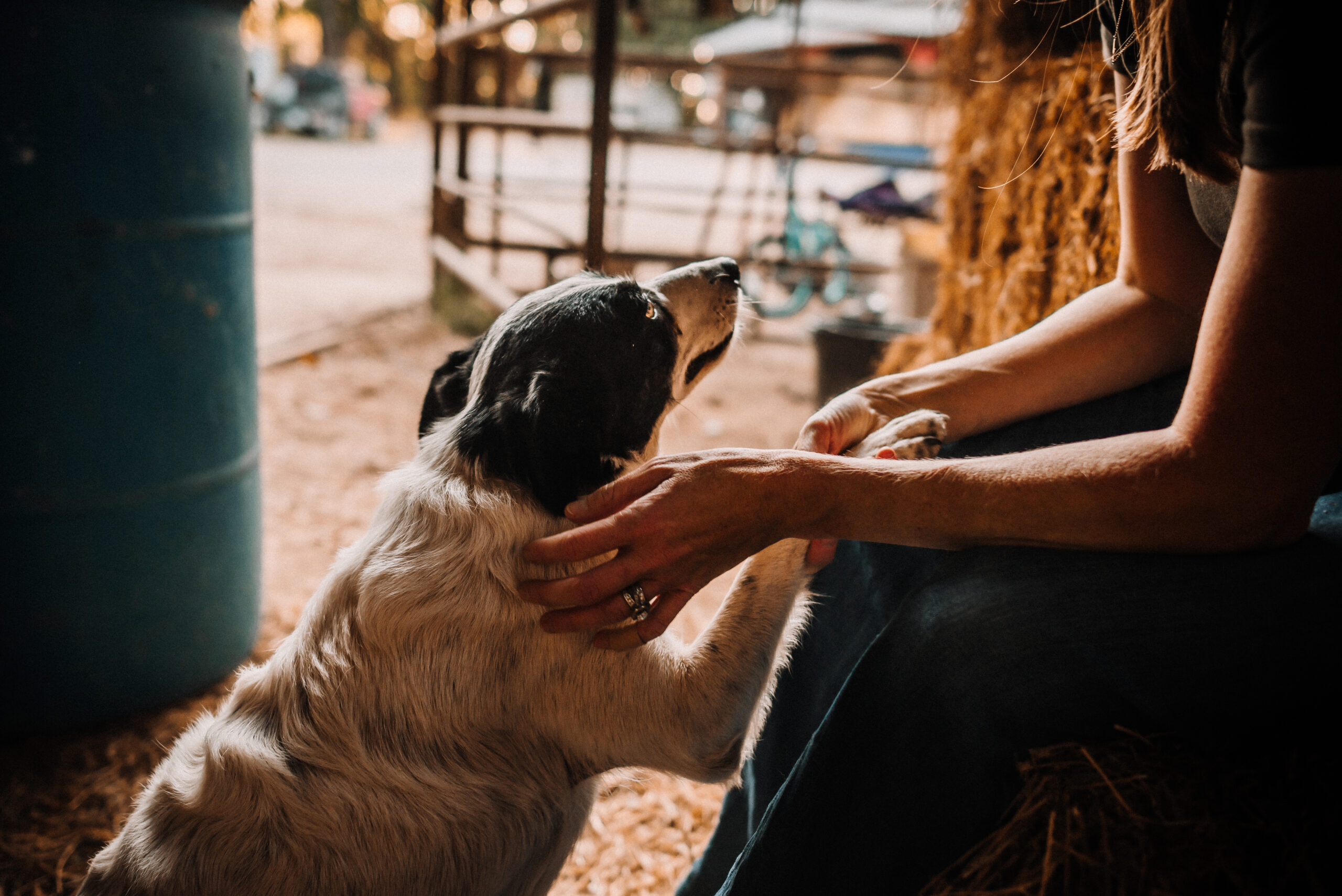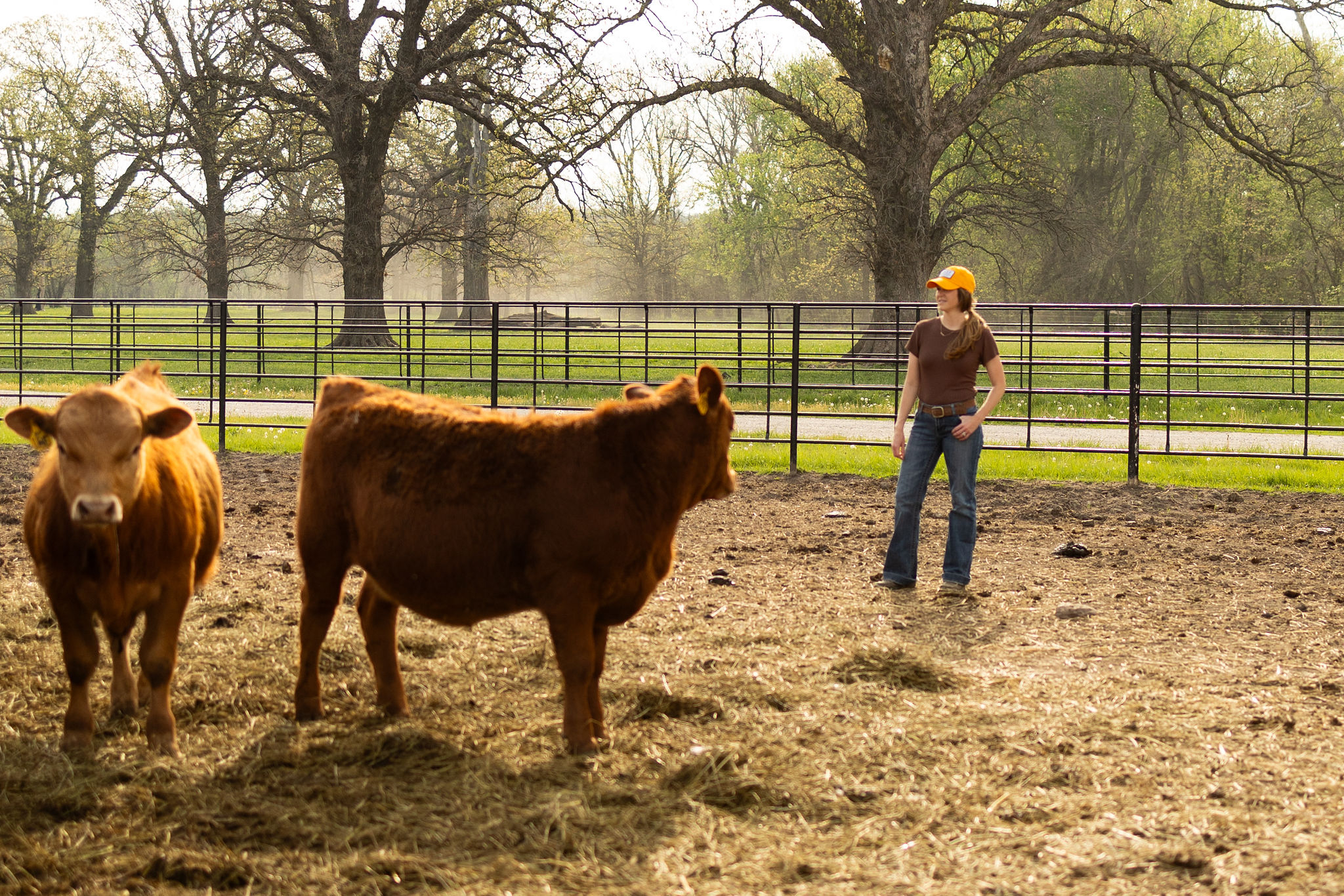Maybe it’s the crushing heat we’re experiencing here in Kansas that has me so easily annoyed but upon reading the latest stupidity-driven marketing decision from Chipotle, I felt I needed to bring
the blog out of dormancy and share my two dollars (two cents won’t cut it this time).
 |
| Evil-looking, no? Photo courtesy: Chance Hunley |
blood boil b) they like to see me get riled up c) they know very few people who despise Chipotle as much as I do and d) they are in agreement that the burrito giant is off its rocker when it comes to marketing and how it sources product.
If you need further reminding of why I despise this restaurant, you can add “hypocrisy runs rampant” to the long list of reasons I haven’t eaten there since 2007.
Do you know what those standards actually say? Let me tell you. Chipotle wanted a farmer, who had been raising pigs for 30 years, to cut a hole in the side of his barn so that the pigs inside could go outside in the snow and single digit temperatures. There are several reasons that pigs are raised indoors, which I’ve discussed before. They don’t have fur coats, they aren’t very hardy – they will get sick and die, or get eaten by a coyote. Raising pigs inside is safer and better for their wellbeing. Additionally, Chipotle has a “never-ever” policy on antibiotic use which gives a farmer two options, essentially. If a pig is sick the farmer can give the animal antibiotics and wait for the proper withdrawal time before sending the animal to slaughter, which ensures that no antibiotics enter the food supply (thousands upon thousands of responsible pig farmers do this to ensure safe pork products every day). In doing so and raising their animals humanely by providing health care, they are removing their animals from Chipotle’s supply chain. However, they can choose not to treat the animal and sell a sick pig (if it lives through the disease) to Chipotle for a supposed premium. You don’t need an advanced degree in animal science to realize that it’s whacko to deny health treatment to a sick animal. I wouldn’t do that to my dog or horses and I damn sure wouldn’t do it to an animal that I hope to be selling or would be using to feed my family.
 |
| This pig, like so many others, is raised indoors to protect it from the elements and predators. |
The thing with antibiotics is that they are a necessary tool that farmers need to help their animals in fighting off nasty bacteria. There are many times throughout a pig’s life that they are more susceptible to disease such as when a few groups of pigs that have never been around each other start buddying up. Think of it as kindergarten for piglets – all those little piggies hanging out on the monkey bars, sharing each other’s boogers and coughing on their hooves. Another example is if the weather turns nasty or chilly and some pigs get the swine equivalent of a sinus infection. These
ailments call for treatment and it’s downright cruel to deny treatment to a sick animal.
So now that you have an idea of the bizarre thought process behind Chipotle’s animal welfare standards, let me get back to the hypocrite part.
Because there was a “shortage” of pork here in the U.S. (Lie. No shortage of responsibly raised pork or beef in the U.S.) good ole Chip jumped the pond and started sourcing pork from Karro Food, a U.K. based company. And guess what?
When asked why the restaurant tyrant decided to let Karro Food, a foreign company, use antibiotics on sick animals but refused to extend that same standard to American producers, this is what Chipotle replied with:
“Our decision to source pork from this new supplier does not mean that Chipotle’s animal welfare protocols are changing at this time. While we prefer to buy pork raised entirely without antibiotics, we are proud to be serving pork from Karro because the responsible way Karro uses antibiotics is consistent with their extremely high animal welfare standards.”
Chipotle also did a nice job of explaining how antibiotics are used responsibly by farmers, but apparently only on U.K. pork farms. Too bad they couldn’t just allow all farmers this necessary technology
instead of continually weaving a web of consumer misinformation. They stated:
“This does not mean that antibiotics are present in the meat. All animals treated with antibiotics (both in Europe and the U.S.) must undergo a withdrawal period before they are slaughtered, which means that meat from a pig treated with antibiotics will not contain antibiotic residue, just like meat from an animal that was never given antibiotics.”
This befuddles me. I have no idea why they would actually move to use reasonable science messages to defend antibiotics use in one country but not in another, when both are comparable in their animal welfare protocols. Hey Chipotle, here’s a #TruthBomb, pull your nose down out of the air long enough to take a look around fly-over country and you’ll find that American farmers use antibiotics responsibly too.
Never Will
Delish — Chipotle is Taking Serious Heat for its New Carnitas Supplier
Until next time,
Buzzard
**Point of clarification: This post is not me saying that organic or natural pork production is wrong, cruel or unnecessary. This post is about Chipotle’s BLATANT hypocrisy regarding their double standards for pork production between U.S. and U.K. producers. Agriculture needs all kinds of people and all kinds of production; there is room for everyone. I have mentioned in comments below that instead of convention aland organic getting up in arms against each other, we need to link arms and fight against these animal rights extremists and anti-technology advocates. If you have further comments regarding organic/natural and conventional, feel free to contact me (email is on About Me page). As always, civil discourse is appropriate and I appreciate your comments and feedback.



